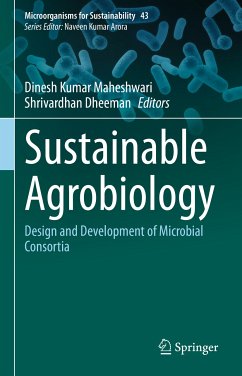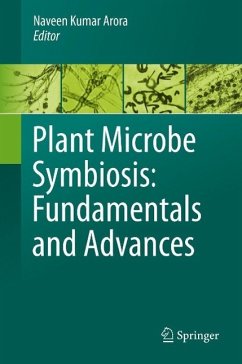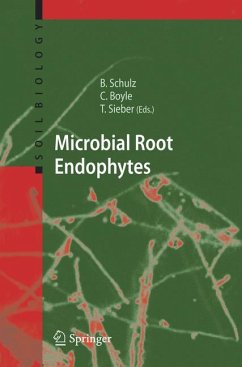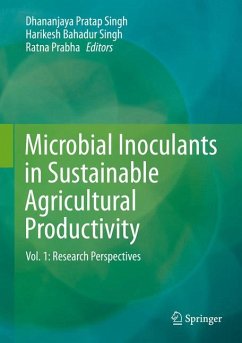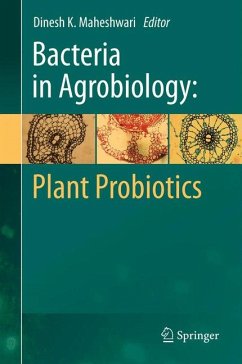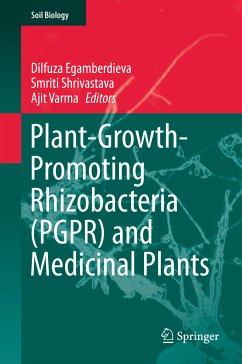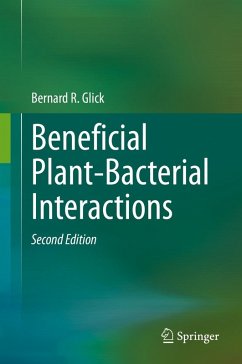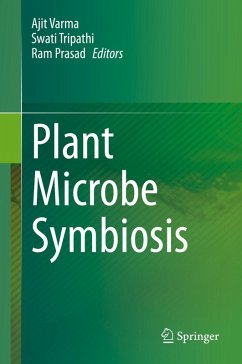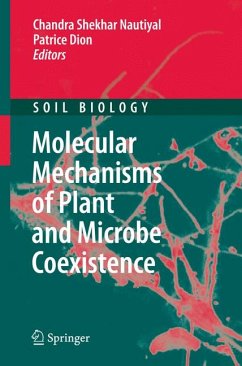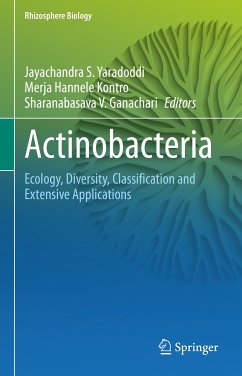
Microbial Cross-talk in the Rhizosphere (eBook, PDF)
Versandkostenfrei!
Sofort per Download lieferbar
136,95 €
inkl. MwSt.
Weitere Ausgaben:

PAYBACK Punkte
68 °P sammeln!
This book discusses the cross-talk between plants and microbes in the rhizosphere. The rhizosphere is the hotspot of microbial activities that influence plant growth and crop yield. The rhizosphere-residing microbes include the nitrogen-fixing rhizobia, mycorrhizal fungi, antibiotic-producing bacteria, antagonistic, plant-beneficial fungi, and entomopathogens. The three-way cross-talk among the plants, the pathogens and other microbes involves signaling molecules, metabolites, and physical interactions. The book also describes deleterious and beneficial aspects of this communication between pl...
This book discusses the cross-talk between plants and microbes in the rhizosphere. The rhizosphere is the hotspot of microbial activities that influence plant growth and crop yield. The rhizosphere-residing microbes include the nitrogen-fixing rhizobia, mycorrhizal fungi, antibiotic-producing bacteria, antagonistic, plant-beneficial fungi, and entomopathogens. The three-way cross-talk among the plants, the pathogens and other microbes involves signaling molecules, metabolites, and physical interactions. The book also describes deleterious and beneficial aspects of this communication between plants and microbes. Plants program the local microbiome near their roots, and the microbial community has a profound influence on the functioning of the plant. This complex communication makes the collection of chapters a timely one, because the diverse subjects are linked by their focus on the molecular language of plant-microbe cross-talk.
This timely and informative book is useful for students and researchers in the fields of microbiology, soil biology, and plant pathology.
This timely and informative book is useful for students and researchers in the fields of microbiology, soil biology, and plant pathology.
Dieser Download kann aus rechtlichen Gründen nur mit Rechnungsadresse in A, B, BG, CY, CZ, D, DK, EW, E, FIN, F, GR, HR, H, IRL, I, LT, L, LR, M, NL, PL, P, R, S, SLO, SK ausgeliefert werden.



